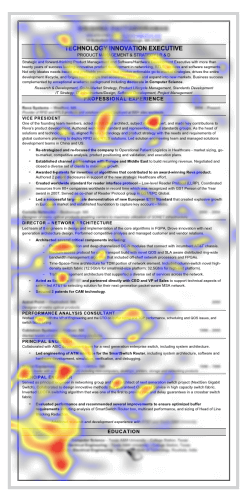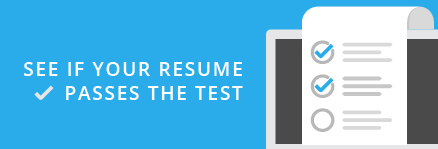Resume length advice hasn’t changed much over the past 60 years. A September 1955 issue of Kiplinger’s Changing Times advised job seekers to:
Keep it short. One page is best. Two are okay; anything longer is likely too much for a prospective employer to plow through. But get everything important in. A skimpy outline that gives little information about you is worse than none at all. Let your first draft run as many pages as you need to get all the facts down. Then rewrite– and cut ruthlessly.
This advice is still the standard today.
How long should a resume be in 2020?
A typical resume should be one or two pages long.
- One page resumes are ideal for recent grads, entry-level resumes, or in-person networking
- Two page resumes are great for most job seekers, particularly those with five-plus years experience in their current field
- Three page resumes might benefit accomplished senior-level workers or technical professionals with large bodies of work
How long should your resume be?
One of the many frustrating things for job seekers is that there aren’t definitive rules when it comes to resume page count. A few strong opinions aside, the prevailing advice is that your resume should be exactly as long as it needs to be and no longer, while also being as brief as possible without selling yourself short.
This advice is squishy, subjective, and open for interpretation. Most job seekers land somewhere in the one-to-three page range, yet some two page resumes would be much better off as one, and vice versa.
Where exactly should you draw the line?
Contributions to resume length
There aren’t many hard and fast answers when it comes to how long a resume should be. It’s dependent on the specifics of your personal experiences. Some factors that determine your resume length include:
- Resume format and style
- How long you’ve been working
- How long you’ve been working in your target field
- How much you’ve moved up within your field
- How many times you’ve changed jobs
- Whether or not you’ve completed higher education
- Whether your higher education aligns with your target field
- The depth of your skill set relevant to the job
- Whether your field is highly technical and/or project-based
These and other aspects of your experience might compound into a resume draft that is four or five or ten pages long. There’s no harm in a long first draft, but just as the Changing Times article suggests, the next step is to “cut ruthlessly.”
The myth of the one page resume
The hard “rule” you’re most likely to encounter is that your resume should be exactly one page long, no exceptions. Many still stand by this advice.
One page made a lot more sense when it was more common to mail, fax, or physically hand your resume to a stranger, but technology has mitigated many of the associated concerns. For example, the second page of an email attachment won’t get lost in the shuffle, or a page break won’t make much of a difference within an applicant tracking system (ATS).
Here are some of the other reasons this advice persists beyond the fear of lost pages and pokey staples.
Resume guidelines must progress with your career
Most of us first learned how to write a resume when we were in high school or college. At that time in our lives, many of us were taught to never ever exceed a single page.
This made sense at the time. Most of us didn’t have the experience to warrant two pages. The problem is that as we’ve developed our careers, we’ve carried that advice with us. The guidelines need to change once you’ve accomplished a few things as a professional.
The six-second resume challenge
Perhaps the most cited piece of information in support of the one page resume is a 2012 study by the Ladders in which recruiters were found to spend an average of six seconds reviewing each resume before deciding how to proceed.
-
The Ladders: Heat map showing that recruiters had no trouble reaching the end of long resume.
“Six seconds” is a tough pill for job seekers to swallow when they might spend hours crafting their resume, never mind the emotional toll of a job search. In this context, it’s reasonable to assume that the second page of your resume is invisible.
No job seeker could effectively state their case in six seconds if recruiters carefully read every word of each inbound resume. That’s just not how most recruiters operate. Experienced recruiters can do a lot in just six seconds.
The study found that recruiters spent most of their time skimming for:
- Name
- Job titles and companies
- Start and end dates (experience level)
- Education
- Particular skills and keywords
A good recruiter doesn’t need the full six seconds to recognize that someone is an obvious “no.” They don’t need much more time than that to determine that someone might be worth a phone call. A second page isn’t going to slow down their skimming.
What could slow them down is a one page resume packed to the margins with information. A one page resume that is difficult to process is far less valuable than a two or three page resume that is well structured and easy to read.
In fact, a more recent study by ResumeGo found that most recruiters rated two page resumes higher than one page resumes.
Constraints lead to a better resume
Arguably the best case that can be made for the one page resume is the belief that constraints breed creativity. By limiting yourself to one page, you’re forced to find creative ways to efficiently sum up your work experience.
It also encourages you to remove anything that doesn’t directly serve your candidacy. We all have experiences that we want to benefit us on our resume– experiences that were really difficult, stressful, fun, interesting. Unfortunately, they’re not always relevant to the job. Capping yourself at one page helps you figure out which experiences serve you well and which ones are distracting.
Granted, you don’t need commit to one page in order to work within constraints or “trim the fat” from your resume.
How to shorten your resume
“Cut ruthlessly” isn’t one-time advice. Your resume should be tailored to each new job for which you apply. That means what you’re cutting should be different every time.
Write up everything into master resume
If rewriting your resume each time requires more time and energy than you have, consider maintaining a comprehensive master resume as a starting point for each tailored job application. List each and every duty, responsibility, hard skill, soft skill, and measurable result throughout your professional history.
Instead of rewriting a new resume for each job, this allows you to skip straight to the ruthless cutting for each new job.
Answer the question of the job description
Your resume is more than proof that you’ve been collecting a paycheck for however many years. An effective resume highlights exactly how you’ve been working toward the job for which you’re applying. See the difference?
Study the job description and identify the most important qualifications and resume keywords. Review each line of your resume and think, “Does this help prove that I’m a great fit for this job?” If not, it’s extraneous at best or distracting at worse. Cut it.
Jobscan helps you home in on what’s important to the employer by instantly analyzing your resume against their job description. Try it out right here in the article:
Emphasize your most relevant experience
Spotlight your most relevant experience and downplay duties that aren’t transferable. For example, let’s say you had a job in which you spent 70 percent of your time performing clerical work and 30 percent on customer service. Now you want to apply for a job at a new company as a Customer Service Representative.
The description of your time at your previous company shouldn’t reflect the reality of 70 percent clerical and 30 percent customer service. Instead, flip it around and focus your description on the accomplishments and responsibilities of your customer service work that is most relevant to the job for which you’re applying.
This isn’t dishonest. It’s a matter of ensuring that your prospective employer recognizes that you have the right skills for the job. Putting too much attention on the less relevant duties will only distract them.
The same can be said for entire jobs. If old experience isn’t relevant, consider leaving the job off your resume or minimizing it to a short sentence or two.
How long should a resume be? It’s up to you
“Your resume should be exactly as long as it needs to be and no longer, while also being as brief as possible without selling yourself short.”
Resume length is a tricky one. If you’re having trouble figuring out how long your resume should be, try focusing more on highlighting your top traits in the most reader-friendly way possible regardless of page count. If you’re frustrated trying to smoosh all your experience into a single page, try a two page resume.
Most importantly, don’t keep doing the same thing if it’s not working. Seek out new advice, try different techniques, and use all the tools at your disposal.



















